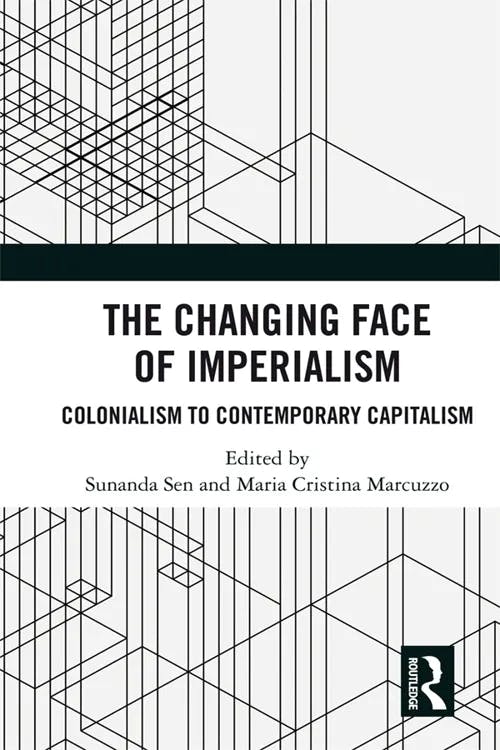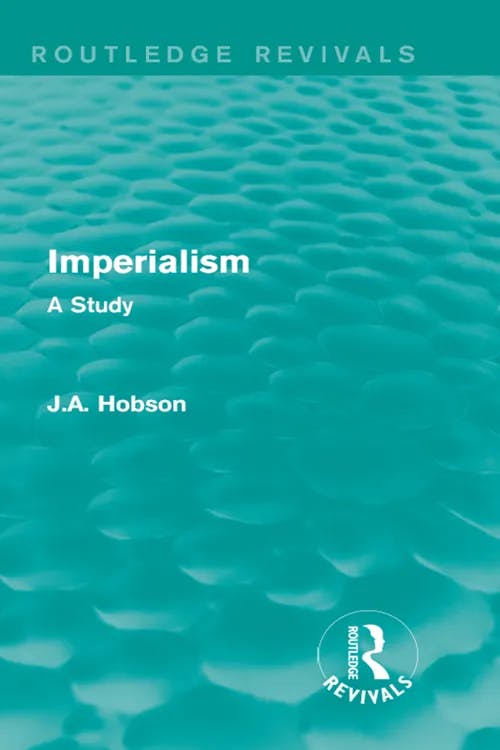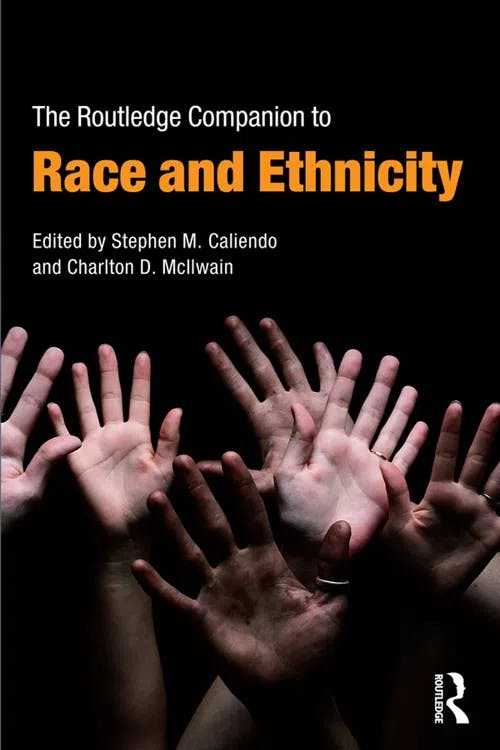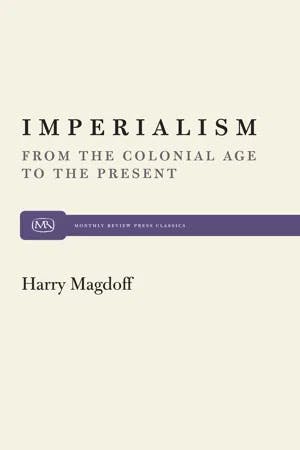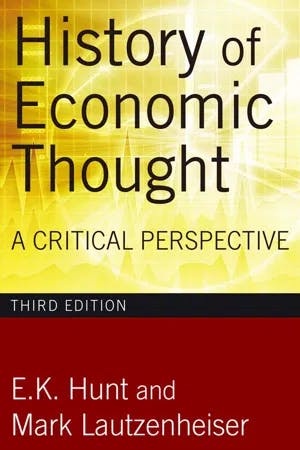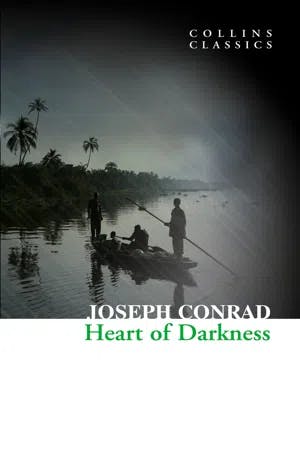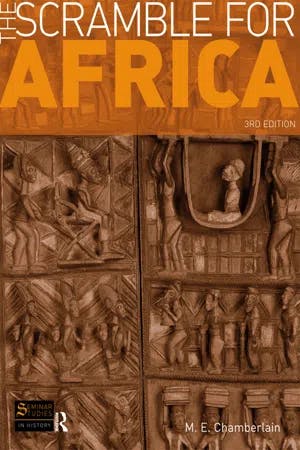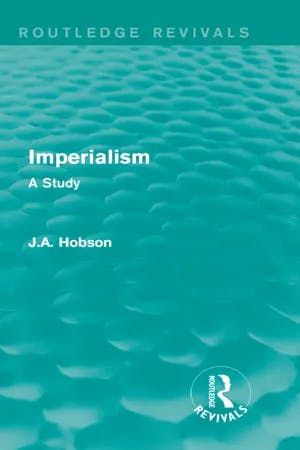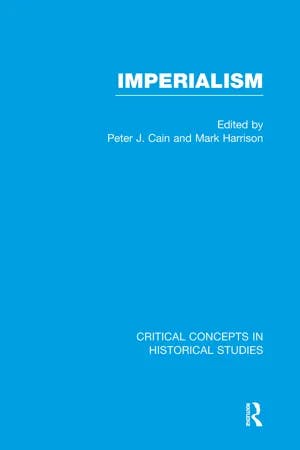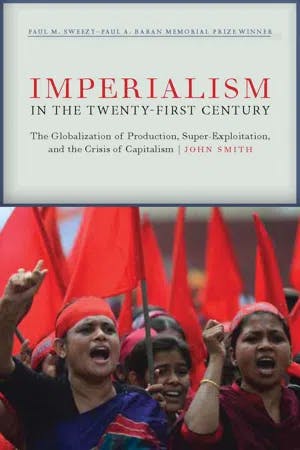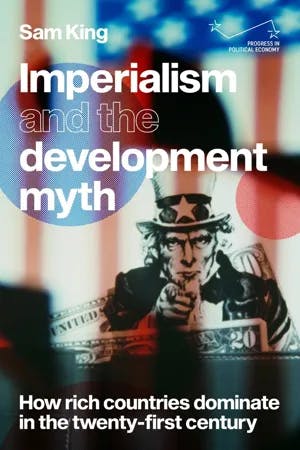What is Imperialism?
PhD, English Literature (Lancaster University)
Date Published: 27.11.2023,
Last Updated: 16.01.2024
Share this article
Defining imperialism
Imperialism refers to the domination of another country through either territorial acquisition, or by gaining economic and political power. The word is often used interchangeably with the term “colonialism,” however the two are not synonymous. Put simply, colonialism refers to the acquisition of another country (usually by force) and the economic exploitation of its resources. Imperialism is often achieved through colonization.
As Satyaki Roy explains, imperialism is a broad term, with “diverse theories” including:
Imperialism conceived as intrinsic to systemic necessity of realising unconsumed surplus at the core; imperialism as modes of reproducing unequal exchange; imperialism as territorial expansion for cheap resources, markets or avenues to invest where the rates of profit are relatively higher; imperialism as the political superstructure of monopoly capital and expanding finance, and also as an outcome of a terminal phase of capitalist cycle; and so on. Hence, we do not have a single theory of imperialism which is applicable for all times in the post-competitive phase of capitalism, nor do we find an abstract rationale to favour one theory over the other. (“Imperialism, the ‘old’ and the ‘new’,” in The Changing Face of Imperialism, 2018)
Edited by Sunanda Sen and Maria Cristina Marcuzzo
Imperialism conceived as intrinsic to systemic necessity of realising unconsumed surplus at the core; imperialism as modes of reproducing unequal exchange; imperialism as territorial expansion for cheap resources, markets or avenues to invest where the rates of profit are relatively higher; imperialism as the political superstructure of monopoly capital and expanding finance, and also as an outcome of a terminal phase of capitalist cycle; and so on. Hence, we do not have a single theory of imperialism which is applicable for all times in the post-competitive phase of capitalism, nor do we find an abstract rationale to favour one theory over the other. (“Imperialism, the ‘old’ and the ‘new’,” in The Changing Face of Imperialism, 2018)
With such an all-encompassing term, it may be useful to look at the ideologies and aims present within imperialist policies. Writing in 1902, when the British Empire was nearing its peak, John A. Hobson argues that
Power, pride, prestige are prevailing sentiments in an imperialist policy. Territorial expansion, the control over backward peoples, the mission of civilisation, the safe-guarding of existing colonial possessions, are not indeed dissociated from the belief that “trade follows the flag” and that by helping to establish order and develop the resources of the peoples and countries which come under our rule, we shall increase our trade and enlarge our national income. (1902, [2018])
John A. Hobson
Power, pride, prestige are prevailing sentiments in an imperialist policy. Territorial expansion, the control over backward peoples, the mission of civilisation, the safe-guarding of existing colonial possessions, are not indeed dissociated from the belief that “trade follows the flag” and that by helping to establish order and develop the resources of the peoples and countries which come under our rule, we shall increase our trade and enlarge our national income. (1902, [2018])
Though Hobson was anti-imperialist, the above statement does reveal that he shared some of its ideology; namely the Eurocentric belief that other countries and their populations were not as advanced or civilized as Britain.
Western imperialism tends to be categorized into two distinct time periods: old imperialism (1450–1650) and new imperialism (1870–1919). This guide will discuss old imperialism briefly, before moving on to the objectives of new imperialism and the white supremacist ideology which attempted to justify colonization. We will primarily deal with European, specifically British, imperialism; though it must be noted that there have been imperialist nations outside of Europe — such as the US and Japan.
Old imperialism
Old imperialism is characterized by European trade agreements and the establishment of colonies in the Americas (known as “the New World”), India, the East Indies, and South Africa. From the 1400s, new trade routes were established with the hopes of discovering new lands as well as resources. The aims of this early form of imperialism can be summed up in three words: gold, glory, God. The desire for economic prosperity, international renown, and the religious conversion of colonized countries is a commonality between old and new imperialism.
It is often said that imperialism and colonialism began with Christopher Columbus’ “discovery” of the Americas (referred to as the “New World”), and subsequent brutalization and enslavement of its people, in 1492. However, as Stephen M. Caliendo and Charlton D. Mcllwain highlight
Modern imperialism is dated from Christopher Columbus’s “discovery” of the Americas but this has been criticized as a Eurocentric conception that assumes no important global developments existed before that date, erases the contribution of non-European empires and civilizations to such developments, and emphasizes the rise of unique, and implicitly superior, modern European/Western societies. Before the eighteenth century, many parts of Asia and the Middle East were more advanced than Western Europe, in Africa powerful empires prevented European penetration and, in the Americas, the Spanish conquistadors encountered the Inca and Aztec empires. (“Identity,” in The Routledge Companion to Race and Ethnicity, 2010)
Edited by Stephen M. Caliendo and Charlton D. Mcllwain
Modern imperialism is dated from Christopher Columbus’s “discovery” of the Americas but this has been criticized as a Eurocentric conception that assumes no important global developments existed before that date, erases the contribution of non-European empires and civilizations to such developments, and emphasizes the rise of unique, and implicitly superior, modern European/Western societies. Before the eighteenth century, many parts of Asia and the Middle East were more advanced than Western Europe, in Africa powerful empires prevented European penetration and, in the Americas, the Spanish conquistadors encountered the Inca and Aztec empires. (“Identity,” in The Routledge Companion to Race and Ethnicity, 2010)
Columbus’ “discovery” resulted in the Treaty of Tordesillas (1494), and thus the expansion of the Spanish and Portuguese empires. The treaty divided the “New World” of the Americas between the two major powers by establishing a new meridian 370 leagues to the west of the Cape Verde islands. Portugal would claim all lands east of the dividing line and Spain, the west. For more information on the Spanish and Portuguese empires, see William Maltby’s The Rise and Fall of the Spanish Empire (2008) and Nuno Domingos and Elsa Peralta’s edited collection Legacies of the Portuguese Colonial Empire (2023).
There was a period of relative peace from European conquest in the mid-nineteenth century as many European nations felt the costs of expansion were too great. A big exception to this is the colonization of India in 1858 under the British Raj, which lasted until 1947 (see Jill C. Bender, The 1857 Indian Uprising and the British Empire, 2016).
New imperialism
New imperialism refers to the period of colonization from 1880 until the outbreak of World War I. In Imperialism, Harry Magdoff highlights two main distinctions between old imperialism and new imperialism:
- The “notable speedup in colonial acquisitions.”
- The increasing number of colonial powers, including Germany, the United States, Belgium, Italy, and Japan.
(2014)
Harry Magdoff
- The “notable speedup in colonial acquisitions.”
- The increasing number of colonial powers, including Germany, the United States, Belgium, Italy, and Japan.
(2014)
The increasing number of colonial powers meant that uncolonized space was limited, and so each colonizing nation raced to secure these territories first.
Magdoff goes on to explain that whilst Great Britain was at an advantage during the first Industrial Revolution, by the time of the second Industrial Revolution, other colonial powers were beginning to catch up:
This new industrialism, notably featuring mass-produced steel, electric power and oil as sources of energy, industrial chemistry, and the internal-combustion engine, spread over Western Europe, the United States, and eventually Japan. (2014)
This economic progress did not only enable imperialist policy, it was also one of the driving forces behind it. Due to major industrial development, the supply, or capacity for supply, was far greater than the demand. As such, new markets needed to be obtained abroad. In The History of Economic Thought, E.K. Hunt and Mark Lautzenheiser write:
When productive capacity grew faster than consumer demand, there was very soon an excess of this capacity (relative to consumer demand), and hence, there were few profitable domestic investment outlets. Foreign investment was the only answer. But insofar as the same problem existed in every industrialized capitalist country, such foreign investment was possible only if noncapitalist countries could be “civilized,” “Christianized,” and “uplifted”—that is, if their traditional institutions could be forcefully destroyed and the people coercively brought under the domain of the “invisible hand” of market capitalism. So imperialism was the only answer. (2015)
E. K. Hunt & Mark Lautzenheiser
When productive capacity grew faster than consumer demand, there was very soon an excess of this capacity (relative to consumer demand), and hence, there were few profitable domestic investment outlets. Foreign investment was the only answer. But insofar as the same problem existed in every industrialized capitalist country, such foreign investment was possible only if noncapitalist countries could be “civilized,” “Christianized,” and “uplifted”—that is, if their traditional institutions could be forcefully destroyed and the people coercively brought under the domain of the “invisible hand” of market capitalism. So imperialism was the only answer. (2015)
The expansion of European capitalism depended upon imperialism and colonization. This meant a complete overturning of indigenous ways of life; their traditions, customs, and religions, as well as their economic and political structures.
Imperialist forces were able to ideologically justify this oppression through a Eurocentric worldview: colonizing nations simply felt they were entitled to claim this land, violently suppress any resistance, and exploit the people and resources, as they viewed themselves to be morally and intellectually superior, evidenced by their industrial and economic feats.
As Michael Wintle states
This economic proof, as it were, of the relative excellence of Europe led to new heights of Eurocentrism. Put simply, the factories of Liège and Manchester allowed Europe to dominate much of the rest of the world and underpin its feelings that Europeans were manifestly the best, amply demonstrated by their evident success in industry, commerce, politics and war. (2020)
Michael Wintle
This economic proof, as it were, of the relative excellence of Europe led to new heights of Eurocentrism. Put simply, the factories of Liège and Manchester allowed Europe to dominate much of the rest of the world and underpin its feelings that Europeans were manifestly the best, amply demonstrated by their evident success in industry, commerce, politics and war. (2020)
Europe now had both the resources to dominate poorer nations, and the belief that such nations needed European intervention and reformation.
The Dark Continent and the scramble for Africa
In Joseph Conrad’s Heart of Darkness (1899), the narrator Charles Marlow states that
[Africa] was not a blank space any more. It had got filled since my boyhood with rivers and lakes and names. It had ceased to be a blank space of delightful mystery — a white patch for a boy to dream gloriously over. It had become a place of darkness. (2010)
Joseph Conrad
[Africa] was not a blank space any more. It had got filled since my boyhood with rivers and lakes and names. It had ceased to be a blank space of delightful mystery — a white patch for a boy to dream gloriously over. It had become a place of darkness. (2010)
This extract reflects nineteenth-century imperialist ideologies surrounding colonized Africa and its people. Africa, and other colonies, were seen in the imperialist imagination as spaces that simply did not exist until they were occupied by white, Western explorers. European colonizers wrote of such “discoveries” as though the land, populations, and resources materialized when they arrived. The thinking behind this was that a place only became significant (and real) once it had been acknowledged by the West. Even when Britain and other countries such as France did establish colonies in Africa, they still failed to acknowledge the reality of what they found, falling back on stereotypes about “the Dark Continent.” Africa was seen as a space shrouded in mystery and darkness, populated by savages who were to be “civilized” through their encounters with their European colonizers. These racist and Eurocentric notions can be seen in literary works such as H. Rider Haggard’s King Solomon’s Mines (1885).
This mentality of European superiority was put into practice during the period known as the “scramble for Africa.” Between 1870 and 1914, European occupation of Africa rose from 10% to almost 90% (Abyssinia and Liberia remained independent). Magdoff writes,
By the turn of the twentieth century, the map of Africa looked like a huge jigsaw puzzle, with most of the boundary lines having been drawn in a sort of game of give-and-take played in the foreign offices of the leading European powers. The division of Africa, the last continent to be so carved up, was essentially a product of the new imperialism, vividly highlighting its essential features. (2019)
In The Scramble for Africa, first published in 1974, M. E. Chamberlain writes,
For the first time in history there was an enormous gap, economic, technological and military, between [Africa and Europe] with the balance entirely in Europe's favour. The second explanation is less obvious but equally important – the mindset of the Europeans. Europeans were at the forefront of progress and civilisation; Africans ‘primitive’ and ‘backward’. Naturally, the Europeans would take over. (2014)
M. E. Chamberlain
For the first time in history there was an enormous gap, economic, technological and military, between [Africa and Europe] with the balance entirely in Europe's favour. The second explanation is less obvious but equally important – the mindset of the Europeans. Europeans were at the forefront of progress and civilisation; Africans ‘primitive’ and ‘backward’. Naturally, the Europeans would take over. (2014)
Christian “civilizing” missions were a method of justifying colonization in the eyes of the British public. Missionaries would visit colonies in an attempt to enlighten and teach English values to the population, simultaneously eradicating indigenous cultures and languages. These missions were presented to the public at home as a moral duty and were referred to as “the white man’s burden,” a phrase taken from Rudyard Kipling’s 1899 poem of the same name.
Kipling’s poem encourages the colonization of the Philippine Islands by the United States. The first stanza acts as a call to action:
Take up the White Man's burden—
Send forth the best ye breed—
Go bind your sons to exile
To serve your captives' need;
To wait in heavy harness
On fluttered folk and wild—
Your new-caught sullen peoples,
Half devil and half child.
(“The White Man’s Burden,” 1899, in The Best of Rudyard Kipling, 2020)
Rudyard Kipling
Take up the White Man's burden—
Send forth the best ye breed—
Go bind your sons to exile
To serve your captives' need;
To wait in heavy harness
On fluttered folk and wild—
Your new-caught sullen peoples,
Half devil and half child.
(“The White Man’s Burden,” 1899, in The Best of Rudyard Kipling, 2020)
Kipling stresses the difficulty for the white man in attempting to civilize the natives of colonized countries. As Wintle explains,
Kipling is pointing to the moral compulsion to undertake this task of philanthropy, whatever the material and strategic advantages, even if it is not wanted or welcomed by those on whom it is imposed. Imperialism is a moral necessity. (2020)
These missions, however, had a secondary purpose. As well as making Britain seem like benevolent colonizers, the enforcement of Eurocentric values eroded the native citizens’ sense of identity, making them more receptive to colonial rule.
Critics of imperialism
It is worth noting that not all within the British Empire agreed with the imperialist pursuit. The outbreak of the Second Boer War (1899–1902) with British Army officer Herbert Kitchener’s barbaric scorched-earth tactics and the establishing of concentration camps, resulted in inflamed anti-imperialist sentiments which had already been brewing in Britain. As Bernard Porter writes in Critics of Empire, “England was by no means unanimous in her imperialism” as anti-imperialist sentiment was strengthened by the Boer War, which “sicken[ed] many Britons with this particular manifestation of imperialism” (2007).
One of the most damning indictments of imperialism from the time can be found in John. A. Hobson’s Imperialism from 1902, which criticizes it on economic and moral grounds. Here, Hobson argues that imperialist expansion is
a constant menace to peace, by furnishing continual temptations to further aggression upon lands occupied by lower races and by embroiling our nation with other nations of rival imperial ambitions. (1902, [2018])
John A. Hobson
a constant menace to peace, by furnishing continual temptations to further aggression upon lands occupied by lower races and by embroiling our nation with other nations of rival imperial ambitions. (1902, [2018])
Though Hobson conforms to a racist, imperial ideology that views other races as inferior, he argues that imperialism is not the answer, as it could prompt aggression from colonized countries.
Hobson further challenges the idea that colonization is of great economic benefit to the colonizing country. He explains that the cost of preparing the military and protecting territory wastes money needed for “internal reforms and for the cultivation of the arts of material and intellectual progress at home” (1902, [2018]). Criticism of imperialism’s economic impact on Britain had also been articulated by John Bright in a speech as early as 1858:
I am inclined to think that, with the exception of Australia, there is not a single dependency of the Crown which, if we come to reckon what it has cost in war and protection, would not be found to be a positive loss to the people of this country. (Quoted in Porter, 2007)
Lastly, Hobson criticizes imperialism on moral grounds:
the spirit, the policy, and the methods of Imperialism are hostile to the institutions of popular self-government, favouring forms of political tyranny and social authority which are the deadly enemies of effective liberty and equality. (1902, [2018])
As such, imperialism undermines liberalism.
In the Fortnightly Review in 1878, Robert Lowe decried imperialism as “the apotheosis of violence” (“Imperialism,” in Imperialism, 2023). He added that,
We have a great deal more to lose than to gain by the spread of violence and rapine, and should, if it were only out of mere selfishness, adhere to the theory that sanctions existing rights and possessions. These cynical pretensions suit well with the insolence of prosperity, but have a bitter recoil in the days of adversity. Imperialism, so far as it is a leading motive, is the claim to be judged on our own cause – a claim which is neither just nor honourable. (Lowe, 1878, [2023])
Edited by Peter J. Cain & Mark Harrison
We have a great deal more to lose than to gain by the spread of violence and rapine, and should, if it were only out of mere selfishness, adhere to the theory that sanctions existing rights and possessions. These cynical pretensions suit well with the insolence of prosperity, but have a bitter recoil in the days of adversity. Imperialism, so far as it is a leading motive, is the claim to be judged on our own cause – a claim which is neither just nor honourable. (Lowe, 1878, [2023])
The end of the British Empire and the legacy of imperialism
Following the impact of the Second World War, Britain was no longer able to expand or maintain its empire. India regained its independence in 1947, and in subsequent decades British colonies in Africa (and all across the world) followed suit. The British Empire officially ended in 1997 with the return of the final territory, Hong Kong, to China. However, this did not mark the end of global imperialism. Instead, imperialism has continued in an evolved form through global capitalism and the subjugation of once-colonized nations through neocolonialism.
As Porter argues,
Several historians have noted the uncanny superficial resemblances between the [British invasion of Egypt in 1881], especially, and the American–British invasion of Iraq in 2003 (both to remove a tyrant, both intended to be temporary but in fact exacerbating local nationalism and Muslim fundamentalism, so that the invading countries were dragged in further. … The only missing element in the Egyptian case is the chimera of ‘weapons of mass destruction’). (2007)
Porter further argues that “American ‘hegemony’ can be seen as the direct successor to British imperialism,” under the guise of globalization (2007).
Indeed, global capitalism seems to be imperialism’s new form. In Imperialism in the Twenty-First Century, John Smith states that
The starvation wages, death-trap factories, and fetid slums in Bangladesh are representative of the conditions endured by hundreds of millions of working people throughout the Global South, the source of surplus value sustaining profits and feeding unsustainable overconsumption in imperialist countries. (2006)
John Smith
The starvation wages, death-trap factories, and fetid slums in Bangladesh are representative of the conditions endured by hundreds of millions of working people throughout the Global South, the source of surplus value sustaining profits and feeding unsustainable overconsumption in imperialist countries. (2006)
This is all part of neocolonialism: the continued oppression of developing nations through economic and political dominance.
In Imperialism and the Development Myth, Sam King further explores imperialism’s presence in the modern world under capitalism, writing that
Despite carrying out a growing part of the world’s work, the poor countries are not breaking free of imperialist domination. Nor do any of them [...] threaten to topple, replace, outcompete or overtake the imperialist states. (2021)
Sam King
Despite carrying out a growing part of the world’s work, the poor countries are not breaking free of imperialist domination. Nor do any of them [...] threaten to topple, replace, outcompete or overtake the imperialist states. (2021)
As King goes on to illustrate, the ideology of nineteenth-century imperialism still underpins exploitation in poorer nations today, which are denigrated as “failed states inhabited by inferior or threatening peoples and regimes” (2021). The belief is perpetuated by the First World, typified in the American dream and neoliberal politics, that the only way for low-income nations to compete is to “catch up” with First World economic and industrial progress, but as King highlights “There is no possibility of Third World catch-up under capitalism” (2021). King argues that there is, however, some hope that imperialist oppression around the globe can be stopped, not through working within the capitalist system, but through a worker’s revolt. King writes that:
Though there is every possibility that imperialist oppression and exploitation of the great mass of humanity living in the Third World – and also in the First World – may be capitalism’s undoing. Imperialism in the twenty-first century is expanding the army of its own gravediggers – the world working class – far beyond any it could have previously imagined. (2021)
Further reading on Perlego
Arendt, H. (1968) Imperialism: Part Two of The Origins of Totalitarianism. Mariner Books. Available at: https://www.perlego.com/book/2450155/imperialism-part-two-of-the-origins-of-totalitarianism-pdf
Brantlinger, P. (2013) Rule of Darkness: British Literature and Imperialism, 1830–1914. Cornell University Press. Available at: https://www.perlego.com/book/534758/rule-of-darkness-british-literature-and-imperialism-18301914-pdf
Duignan, P., and Gann, L. H. (2013) Burden of Empire: An Appraisal of Western Colonialism in Africa South of the Sahara. Hoover Institution Press. Available at: https://www.perlego.com/book/971312/burden-of-empire-an-appraisal-of-western-colonialism-in-africa-south-of-the-sahara-pdf
Trafford, J. (2020) The Empire at Home: Internal Colonies and the End of Britain. Pluto Press. Available at: https://www.perlego.com/book/2059054/the-empire-at-home-internal-colonies-and-the-end-of-britain-pdf
Imperialism FAQs
What is the difference between imperialism and colonialism?
What is the difference between imperialism and colonialism?
What is the difference between old imperialism and new imperialism?
What is the difference between old imperialism and new imperialism?
What was the scramble for Africa?
What was the scramble for Africa?
What is an example of imperialism?
What is an example of imperialism?
Bibliography
Bender, J. C. (2016) The 1857 Indian Uprising and the British Empire. Cambridge University Press. Available at: https://www.perlego.com/book/4226881/the-1857-indian-uprising-and-the-british-empire-pdf
Caliendo, S. M. and Mcllwain, C. D. (eds.) (2010) “Identity,” in The Routledge Companion to Race and Ethnicity. Routledge. Available at: https://www.perlego.com/book/1514897/the-routledge-companion-to-race-and-ethnicity-pdf
Chamberlain, M. E. (2014) The Scramble for Africa. 3rd edn. Routledge. Available at: https://www.perlego.com/book/1323625/the-scramble-for-africa-pdf
Conrad, J. (2010) Heart of Darkness. William Collins. Available at: https://www.perlego.com/book/670071/heart-of-darkness-pdf
Domingos, N., and Peralta, E. (eds.) (2023) Legacies of the Portuguese Colonial Empire: Nationalism, Popular Culture and Citizenship. Bloomsbury Academic. Available at: https://www.perlego.com/book/4179171/legacies-of-the-portuguese-colonial-empire-nationalism-popular-culture-and-citizenship-pdf
Haggard, H. R. (2010) King Solomon’s Mines. William Collins. Available at: https://www.perlego.com/book/669638/king-solomons-mines-pdf
Hobson, J. A. (2018) Imperialism: A Study. Routledge. Available at: https://www.perlego.com/book/1485798/imperialism-a-study-pdf
Hunt, E. K. and Lautzenheiser, M. (2015) The History of Economic Thought: A Critical Perspective. Routledge. Available at: https://www.perlego.com/book/1561212/history-of-economic-thought-a-critical-perspective-pdf
Lowe, R. (2023) “Imperialism,” in Cain, P. J., and Harrison, M. (eds.) Imperialism: Critical Concepts in Historical Studies, Volume I. Routledge. Available at: https://www.perlego.com/book/3812697/imperialism-critical-concepts-in-historical-studies-volume-i-pdf
Magdoff, H. (2019) Imperialism: From the Colonial Age to the Present. Monthly Review Press. Available at: https://www.perlego.com/book/978640/imperialism-from-the-colonial-age-to-the-present-pdf
Maltby, W. (2008) The Rise and Fall of the Spanish Empire. Bloomsbury Academic. Available at: https://www.perlego.com/book/2997124/the-rise-and-fall-of-the-spanish-empire-pdf
Porter, B. (2007) Critics of Empire: British Radicals and the Imperial Challenge. I. B. Tauris. Available at: https://www.perlego.com/book/918728/critics-of-empire-british-radicals-and-the-imperial-challenge-pdf
Roy, S. (2018) “Imperialism, the ‘old’ and the ‘new’,” in Sen, S., and Marcuzzo, M. C. (eds.)
Colonialism to Contemporary Capitalism: The Changing Face of Imperialism. Routledge India. Available at: https://www.perlego.com/book/1380482/the-changing-face-of-imperialism-colonialism-to-contemporary-capitalism-pdf
Smith, J. (2016) Imperialism in the Twenty-First Century: Globalization, Super-Exploitation, and Capitalism's Final Crisis. Monthly Review Press. Available at: https://www.perlego.com/book/721110/imperialism-in-the-twentyfirst-century-globalization-superexploitation-and-capitalisms-final-crisis-pdf
Wintle, M. (2020) Eurocentrism: History, Identity, White Man's Burden. Routledge. Available at: https://www.perlego.com/book/1693096/eurocentrism-history-identity-white-mans-burden-pdf
King, S. (2021) Imperialism and the development myth: How rich countries dominate in the twenty-first century. Manchester University Press. Available at: https://www.perlego.com/book/2801707/imperialism-and-the-development-myth-how-rich-countries-dominate-in-the-twentyfirst-century-pdf
PhD, English Literature (Lancaster University)
Sophie Raine has a PhD from Lancaster University. Her work focuses on penny dreadfuls and urban spaces. Her previous publications have been featured in VPFA (2019; 2022) and the Palgrave Handbook for Steam Age Gothic (2021) and her co-edited collection Penny Dreadfuls and the Gothic was released in 2023 with University of Wales Press.

